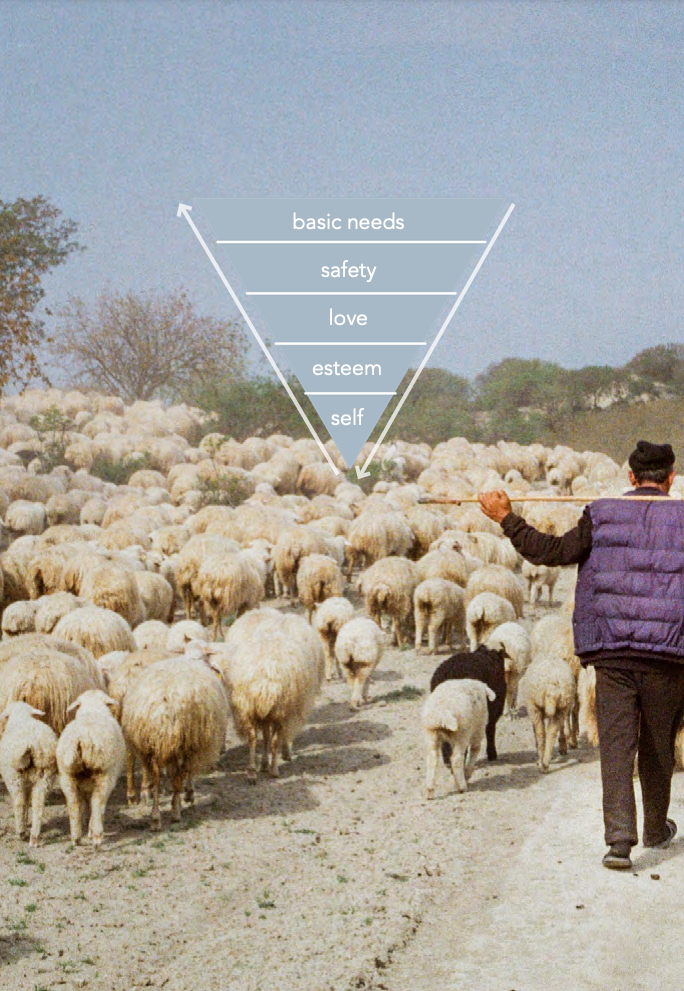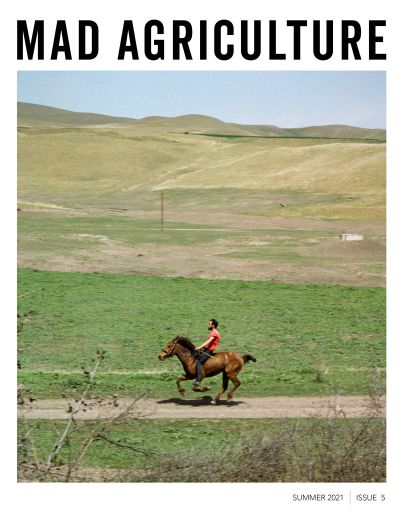
The Mad Agriculture Journal
Using Place to Understand Self
Published on
June 08, 2021
Written by
Clark Harshbarger
Photos by
Arina Abbott
We believe that the understanding of place begins with the development of a holistic context. The context articulates one’s intention, that then motivates one’s actions to engage in a regenerative lifestyle. As a steward, or as I like to say “caretaker”, the decisions we make need to be holistic in order to manifest this consciousness into our reality. How deeply we grasp this concept is seen through our management of the diversity of life that surrounds us. Caring for the very things that we depend on to survive, reveals our understanding of place. Following this logic through, leads us to the conclusion that the outward management of the natural resources reflects the inward love we feel toward ourselves. Because ultimately, self care is a form of self preservation.
So when we begin working with producers, we invite them to have a conversation about what it is they are trying to regenerate? We ask them, “What do you want the land under your management to become, if all of the current and future barriers were to be removed?” What does success look and feel like in your context? Who and what stands to benefit from this success? From our work in holistic management, we have learned to have them focus on the ends first and not the means. Further along in the process we can address the where, when, and how’s but first we must clearly define the who, what and the why.
We walk the land with them, withholding judgment, or sharing quick fix solutions and try our best to engage in active listening. This can be difficult to do and one has to resist the temptation to get into the details before the process of developing a context is complete. We believe that we will not find solutions to regenerating degraded land bases and their surrounding communities, unless the stewards who control the decisions can first define what they are trying to achieve. Ultimately, they are the ones who will live with the outcomes of their management decisions.

So as we walk and talk, we ask them to show us the places on their land that have special meaning to them. We ask about what they remember from their childhood, if they happen to be from a family farm or ranch. What smells or sounds they remember? We ask them to show us their favorite view of the wide open landscape under their management. We ask if they have heard stories of what the land looked like when your great grandmother or grandfather first took ownership? We ask if they are aware of the cultures of the nations that came before them and how they lived with the land?
To ask one to engage with us in this way, suggest a place of comfort. Clearly, to have the time and perspective to think in this way, from the top of Maslow’s triangle, is also an example of privilege*. But what if it may be necessary to invert Maslow’s triangle, even for just one afternoon in our lives, for us to begin to articulate in depth our understanding of what we are aiming to achieve through our actions. Actions speak louder than words. But misguided actions can often be a misuse of time and resources, which are both finite in the course of a human life. So we ask the producers we are working with to spin the globe or as in this example of Maslow’s triangle, turn something on its head, in order to gain a new perspective to begin to shift their paradigm.
To ask such intimate questions when we are conscious that there is much to do and that needs to get done, it may seem a little bit naive, and perhaps it is. Maybe it is even a little bit MAD! But through this process and line of thinking, we might just discover the reason behind why one chooses to work on the land. Does one’s intention go beyond using the rhetorical question, “Why not?” Perhaps by starting with the statement, “What does this place want to be?”, it asks the first existential question needed to begin a regenerative journey. But the process cannot truly begin, until we answer the following question, “What does this place need me to be?”
This is the culture in agriculture that we at Mad Agriculture seek to try to understand. What lens do the producers we work with use to see the land? As planners, partners, allies, community members and oftentimes friends of our fellow land stewards, we cannot use our impressions or our own lens to help them see their farm. Instead we choose to lend them a kaleidoscope for them to use to gaze across the open landscape that is under their management and help to guide them to achieve that vision.
*I acknowledge this and I am guilty of the privilege that has been afforded and even offered to many who share my socio-economic class and race. By acknowledging this privilege, we at Mad Agriculture offer acts of reconciliation to those in the agricultural community so that others can have equal opportunities to succeed. Examples of these acts are: helping historically under-served farmers gain access to land, open sourcing of ideas and resources, and helping those groups and individuals access new and growing regenerative markets and supply chains.
